QuestionYour answer worked! I trapped the parakeets when they were asleep and caught the last one 2 days ago. the moment the last aprakeet was out, the lovebirds climbed out of their house and relaxed. But now, the lovebirds seem to be neglecting their eggs sometimes. Both of them go outside and just play. How long can they leave the eggs before something bad happens?
-------------------------------------------
The text above is a follow-up to ...
-----Question-----
They live in an avairy with six parakeets. So far, the eight seem to get along except for times when the male lovebird starts to harass everyones' favorite victem, the yellow one.
Well, we just added straws and newspaper for them to see if they would accept their new materials. At least they haven't kicked the last four eggs out yet...We didn't expect them to lay any eggs at all (since our parakeets don't even though we had them for 2 years already) so it was a surprise. this is the first egg laying pair we have ever had so...we don't really know what is needed. I don't know the exact date of their latest eggs, but i think maybe...roughly 2-3 weeks ago. We just added 2 nest boxes to their avairy since our parakeets absolytly LOVE their houses (they're also really possessive about them too and the lovebirds immediately claimed one as soon as the set their eyes on it (and after the made sure it wasn't poison or something like that). I'm also concerned about the female, I never see her outside of her nest. When she eats, she does it secretly or not even at all. i only saw her eating once. the male appears alot more often and ventures out to get fruit and vegetables. I got these two about 3-4 monthes ago and their previous owner breed them too. they were the proud parents of alot of clutches. maybe they're unsure on how to take care of their eggs because of the movement to an outside enviroment?
--Nhi
-------------------------------------------
The text above is a follow-up to ...
-----Question-----
I just got a pair of lovebirds from a friend and they started laying eggs in November. I think they had two or more eggs in November and I didn't notice it until they kicked their eggs out of their box and on to the floor. Of course, the eggs cracked into many minature pieces. this month they started laying again. this morning i foung three eggs on the floor once again and they have four more eggs in their box. Why are they kicking thier eggs out of their nest?
P.S. I was wondering when is their egg laying season as well as parakeets and cockatiels.
-----Answer-----
Hi, Nhi. Thanks for posting!
Are your lovebirds in a cage with any other birds? What dates did they lay this last group of eggs? Did you allow the lovebirds to make their own nest inside the nesting box? I need as many details as you can provide.
Lovebirds, parakeets, and cockatiels can be bred all year round if conditions are made right for them. Typically, breeding season for most birds begins early spring and lasts through about Septemper or October. This is when days are longer, warm weathers sets in, food is plentiful. However, if you can simulate the long days by keeping lights on the birds for 16 hours per day, keep their room warm, and ensure food is plentiful, they can breed year round. This doesn't mean you should breed them year round...they need time to rest, etc., in between breeding. You should only breed a pair of birds 2-3 times per year, depending on clutch size, how well the pair does with their clutches, and the size and quality of offspring, etc.
Chrys
-----Answer-----
Hi again, Nhi.
I'd say the problem is most likely the result of the lovies being in the same aviary with the keets. I do not recommend colony/aviary breeding of any parrots. Your lovies need to be in their own breeding cage with a nesting box. If you don't intend to breed your keets, I recommend you remove any nesting boxes from the aviary. They don't need boxes to sleep/play in! A nesting box to a parrot is a signal to lay eggs!
Colony/aviary breeding poses a lot of problems. In most cases, other birds will enter the nesting box of a pair of birds and destroy eggs and/or kill babies, and sometimes even kill the female bird sitting on any eggs/babies. A bonded pair of birds just can't successfully hatch and care for their offspring when they are caged with other parrots in a colony setting. The only time this works is if the aviary is large enough that there's PLENTY of room for all pairs and twice as many nesting boxes in place as there are pair-bonded breeding pairs. If there are any single birds (nonpair-bonded birds) in the same aviary, it never works.
Be sure not to put any nesting material in the lovebird's nesting box. Place the material in the cage and allow them to make their own nest in the nesting box.
The female lovie will stay in her box most of the time (especially with other birds in the aviary). The male will feed the female, but she will come out occasionally to defecate and eat if she feels she has time. However, with your setup, she may not want to leave the nest for fear of other birds getting in. This is another reason to separate your lovebirds from the aviary...the female needs to feel comfortable enough to leave her nesting box when she needs to or her health could be affected.
Chrys
Be sure not
AnswerHi again Nhi.
I'm glad it worked! The lovies are most likely so glad the keets are gone they are enjoying themselves at the expense of their eggs. If the eggs cool down, which could take as little as 10 minutes depending on the temperature inside the nesting box, their development could be affected. Normally, a pair of birds know exactly how long they can be away from their eggs before they cool down; this is just how Mother Nature works. If they are spending more than say 5-10 minutes at a time off their eggs, there could be problems with hatching depending on the temperature. If the temperature where you live is hot, the room is hot, and the inside of the nesting box stays warm, then the birds may be able to spend more time off their eggs. All I can tell you is to watch how much time they are spending outside the box, and if it seems excessive, you may have to pull the eggs for manual incubation in order to save them. However, perhaps your lovies were just so happy to have the keets removed, they wanted to enjoy it, then went back to incubating their eggs properly. Let me know how it's going.
Chrys

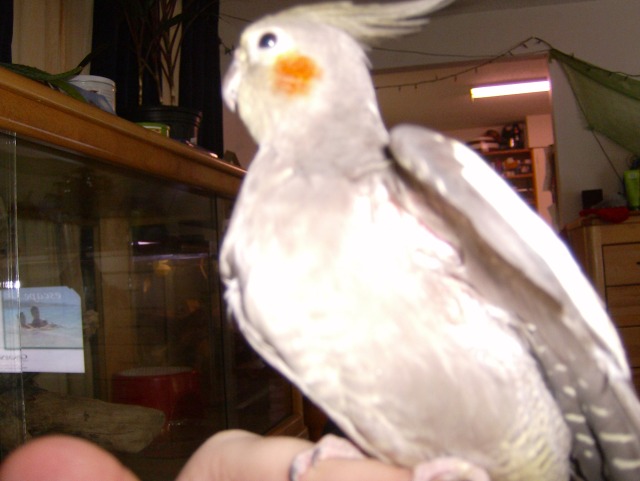 my cockitale mocha
QuestionQUESTION: I have a cokitale that will be 3 on A
my cockitale mocha
QuestionQUESTION: I have a cokitale that will be 3 on A
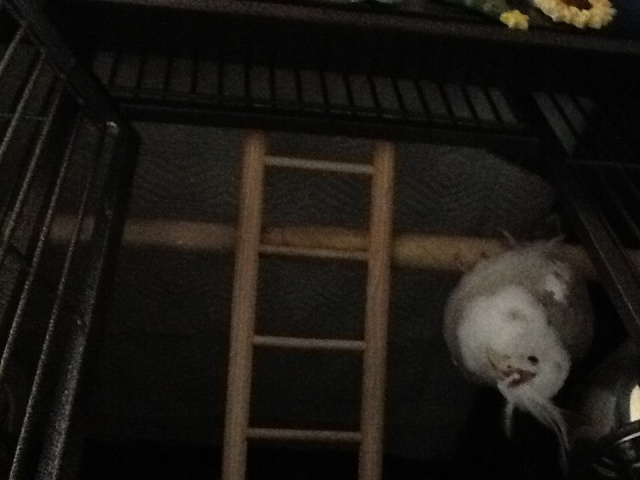 White faced cockatiel injury
Question
cockatiel injury
My 8 year old cockatie
White faced cockatiel injury
Question
cockatiel injury
My 8 year old cockatie
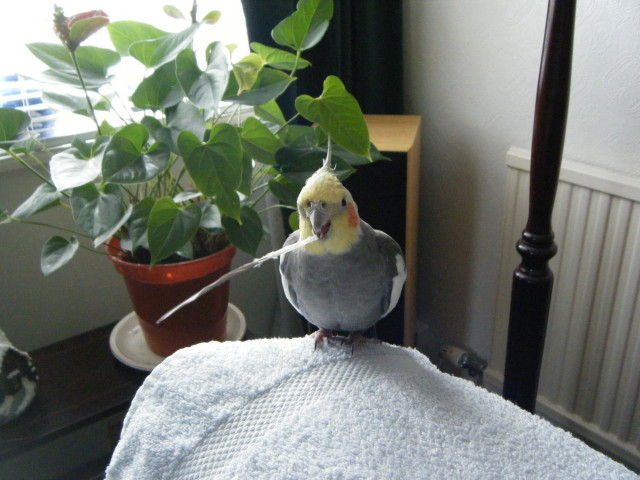 boris the cockatiel
Question
boris
Hello , I have a male cockatiel called b
boris the cockatiel
Question
boris
Hello , I have a male cockatiel called b
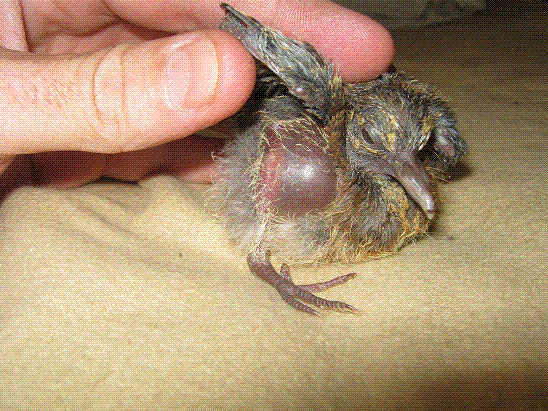 Baby Pigeon
Question
Cosmo
Hi Roger
We picked up a baby pigeon, ap
Baby Pigeon
Question
Cosmo
Hi Roger
We picked up a baby pigeon, ap
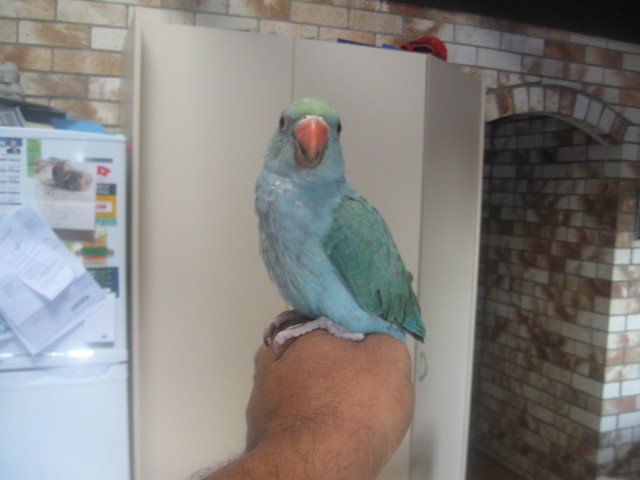 Color of my indian ringneck
Question
Boots
I have an eleven week old male ringneck
Color of my indian ringneck
Question
Boots
I have an eleven week old male ringneck